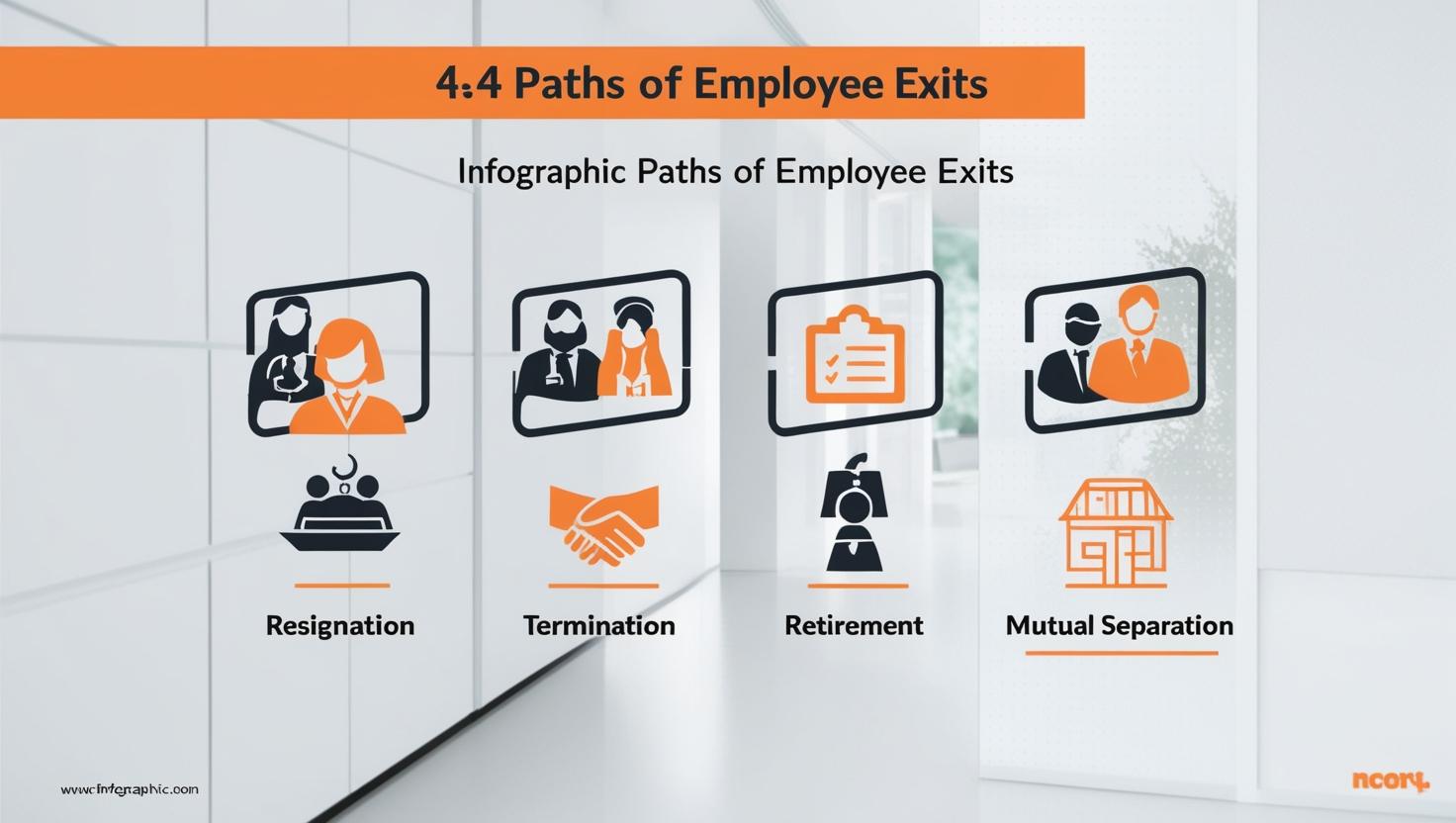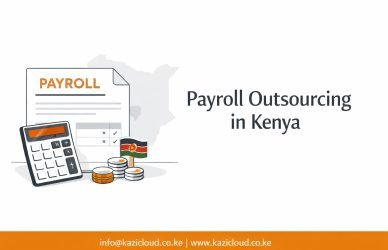Key Highlights
- Employee exit management is a critical yet often overlooked component of the HR lifecycle.
- Employers or employees may terminate a contract with notice or by paying wages in lieu of notice.
- Employers must issue a Certificate of Service as required under Section 51 of the Employment Act.
Employee exit management is a critical yet often overlooked component of the HR lifecycle. Whether an employee is resigning, being terminated, or retiring, how you handle their exit can influence your company’s reputation, compliance posture, and even team morale. In this guide, we break down the essentials of managing employee exits professionally and legally under the Kenya Employment Act.
1. Understanding Types of Employee Exits
There are generally four ways an employee can exit a company:
- Voluntary resignation: The employee chooses to leave.
- Termination by employer: Based on misconduct, redundancy, or poor performance.
- Retirement: Due to age or agreed-upon contractual retirement.
- Mutual separation: Both parties agree to part ways.
Each type has its own set of legal and procedural requirements under the Employment Act.
2. Employee Exit Management: Notice Periods & Employment Act Compliance
According to Section 35 of the Kenya Employment Act:
- Employers or employees may terminate a contract with notice or by paying wages in lieu of notice.
- The standard notice period is seven days for weekly contracts, and 28 days for monthly contracts unless otherwise stated in the contract.
- If a termination occurs without proper notice, one party may seek compensation.
Always ensure that notice periods are documented and mutually acknowledged to avoid future legal disputes.
3. Exit Documentation and Clearance
To formalise the exit process:
- Provide a resignation acceptance letter or termination letter.
- Initiate a clearance form to account for return of company property, financial reconciliation, and system access revocation.
- Conduct an exit interview to gather feedback and identify areas for organizational improvement.
- Process final dues including salary, accrued leave days, and any terminal benefits.
Employers must issue a Certificate of Service as required under Section 51 of the Employment Act.
4. Employee Exit Management: Final Dues and Benefits
Final dues should be processed promptly and include:
- Salary up to last working day
- Accrued leave pay
- Gratuity or pension contributions if applicable
- Any other benefits agreed upon in the contract
Delays in settling final dues may lead to disputes or reputational damage. Ensure all financial and legal obligations are met within the timelines stipulated by law.

5. Handling Sensitive Terminations
In cases of:
- Misconduct: Follow fair hearing and disciplinary procedures as outlined in Section 41 of the Employment Act.
- Redundancy: Give at least one month’s notice to the employee and the labor office. Offer severance pay of not less than 15 days’ pay for each year worked.
- Retirement: Ensure the retirement policy is clear and aligned with labor law provisions and the company handbook.
Tip: Always document every step of the process to support the fairness and legality of the decision.
6. Post-Exit Considerations
- Data security: Disable system and email access.
- Client communications: Inform clients if needed and reassign duties.
- Alumni engagement: Consider creating a talent pool of former employees for future re-hires or referrals.
Frequently Asked Questions (FAQs)
Q1: Can an employee resign without notice? A: Yes, but they must pay salary in lieu of notice unless waived by the employer.
Q2: What if an employee refuses to return company property? A: Withhold final dues or take legal action as a last resort.
Q3: Is exit interview mandatory? A: Not legally, but it is a best practice for HR improvement.
Q4: How soon should final dues be paid? A: Ideally within 7 days of the employee’s last working day.
Need help designing a legally sound and employee-friendly exit process? Kazicloud Careers is here to assist! From policy drafting to exit interviews, we offer end-to-end HR consultancy for Kenyan employers.
Reach out to us today and let us simplify your HR operations.
This article is intended for general informational purposes only and does not constitute legal advice. For specific guidance, consult a qualified employment lawyer or HR consultant in Kenya.






